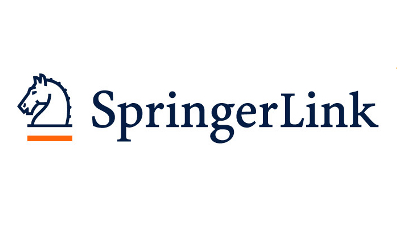 “Chronic stress causes a variety of physiological and behavioral alterations, including social impairments, altered endocrine function, and an increased risk for psychiatric disorders. Thereby, social stress is one of the most effective stressful stimuli among mammals and considered to be one of the major risk factors for the onset and progression of neuropsychiatric diseases.
“Chronic stress causes a variety of physiological and behavioral alterations, including social impairments, altered endocrine function, and an increased risk for psychiatric disorders. Thereby, social stress is one of the most effective stressful stimuli among mammals and considered to be one of the major risk factors for the onset and progression of neuropsychiatric diseases.
Although the chronic social defeat stress model has been extensively studied, little is known about the effects of repeated or chronic social defeat stress on the endocannabinoid system (ECS).
The present study aimed to understand the effects of chronic social stress on anxiety behavior and the levels of endocannabinoids (ECs) and two N-acylethanolamines (NAEs) in different brain regions of mice.
The current study confirms that the ECS plays an essential role in stress responses, whereby its modulation seems to be brain region dependent.”
https://www.ncbi.nlm.nih.gov/pubmed/32322676
https://www.liebertpub.com/doi/10.1089/can.2019.0041

 “Post-traumatic stress disorder (PTSD) is a complex disorder that involves dysregulation of multiple neurobiological systems. The traumatic stressor plays a causal role in producing psychological dysfunction and the pattern of findings suggests that the hypothalamic-pituitary-adrenal (HPA) axis, which is instrumental for stress adaptation, is critically dysfunctional in PTSD. Given the lack of understanding of the basic mechanisms and underlying pathways that cause the disorder and its heterogeneity, PTSD poses challenges for treatment.
“Post-traumatic stress disorder (PTSD) is a complex disorder that involves dysregulation of multiple neurobiological systems. The traumatic stressor plays a causal role in producing psychological dysfunction and the pattern of findings suggests that the hypothalamic-pituitary-adrenal (HPA) axis, which is instrumental for stress adaptation, is critically dysfunctional in PTSD. Given the lack of understanding of the basic mechanisms and underlying pathways that cause the disorder and its heterogeneity, PTSD poses challenges for treatment. “Over the past decade there has been a surge of interest in the development of endocannabinoid-based therapeutic approaches for the treatment of diverse neuropsychiatric conditions. Although initial preclinical and clinical development efforts focused on pharmacological inhibition of fatty acid amide hydrolase to elevate levels of the endocannabinoid anandamide, more recent efforts have focused on inhibition of monoacylglycerol lipase (MAGL) to enhance signaling of the most abundant and efficacious endocannabinoid ligand, 2-arachidonoylglycerol (2-AG). We review the biochemistry and physiology of 2-AG signaling and preclinical evidence supporting a role for this system in the regulation of anxiety-related outcomes and stress adaptation. We review preclinical evidence supporting MAGL inhibition for the treatment of affective, trauma-related, and stress-related disorders; describe the current state of MAGL inhibitor drug development; and discuss biological factors that could affect MAGL inhibitor efficacy. Issues related to the clinical advancement of MAGL inhibitors are also discussed. We are cautiously optimistic, as the field of MAGL inhibitor development transitions from preclinical to clinical and theoretical to practical, that pharmacological 2-AG augmentation could represent a mechanistically novel therapeutic approach for the treatment of affective and stress-related neuropsychiatric disorders.”
“Over the past decade there has been a surge of interest in the development of endocannabinoid-based therapeutic approaches for the treatment of diverse neuropsychiatric conditions. Although initial preclinical and clinical development efforts focused on pharmacological inhibition of fatty acid amide hydrolase to elevate levels of the endocannabinoid anandamide, more recent efforts have focused on inhibition of monoacylglycerol lipase (MAGL) to enhance signaling of the most abundant and efficacious endocannabinoid ligand, 2-arachidonoylglycerol (2-AG). We review the biochemistry and physiology of 2-AG signaling and preclinical evidence supporting a role for this system in the regulation of anxiety-related outcomes and stress adaptation. We review preclinical evidence supporting MAGL inhibition for the treatment of affective, trauma-related, and stress-related disorders; describe the current state of MAGL inhibitor drug development; and discuss biological factors that could affect MAGL inhibitor efficacy. Issues related to the clinical advancement of MAGL inhibitors are also discussed. We are cautiously optimistic, as the field of MAGL inhibitor development transitions from preclinical to clinical and theoretical to practical, that pharmacological 2-AG augmentation could represent a mechanistically novel therapeutic approach for the treatment of affective and stress-related neuropsychiatric disorders.” “Excessive fear and anxiety, coupled with corticolimbic dysfunction, are core features of stress- and trauma-related psychopathology, such as posttraumatic stress disorder (PTSD).
“Excessive fear and anxiety, coupled with corticolimbic dysfunction, are core features of stress- and trauma-related psychopathology, such as posttraumatic stress disorder (PTSD).
 “The
“The  “The behavioural effects elicited by chemical constituents of Cannabis sativa, such as
“The behavioural effects elicited by chemical constituents of Cannabis sativa, such as  “Posttraumatic Stress Disorder (PTSD) is a leading psychiatric disorder that mainly affects military and veteran populations but can occur in anyone affected by trauma. PTSD treatment remains difficult for physicians because most patients with PTSD do not respond to current pharmacological treatment. Psychotherapy is effective, but time consuming and expensive. Substance use disorder is often concurrent with PTSD, which leads to a significant challenge for PTSD treatment.
“Posttraumatic Stress Disorder (PTSD) is a leading psychiatric disorder that mainly affects military and veteran populations but can occur in anyone affected by trauma. PTSD treatment remains difficult for physicians because most patients with PTSD do not respond to current pharmacological treatment. Psychotherapy is effective, but time consuming and expensive. Substance use disorder is often concurrent with PTSD, which leads to a significant challenge for PTSD treatment.
 “This review is to summarize most recent evidence published in the last 18 months on medical and recreational use of cannabis and
“This review is to summarize most recent evidence published in the last 18 months on medical and recreational use of cannabis and